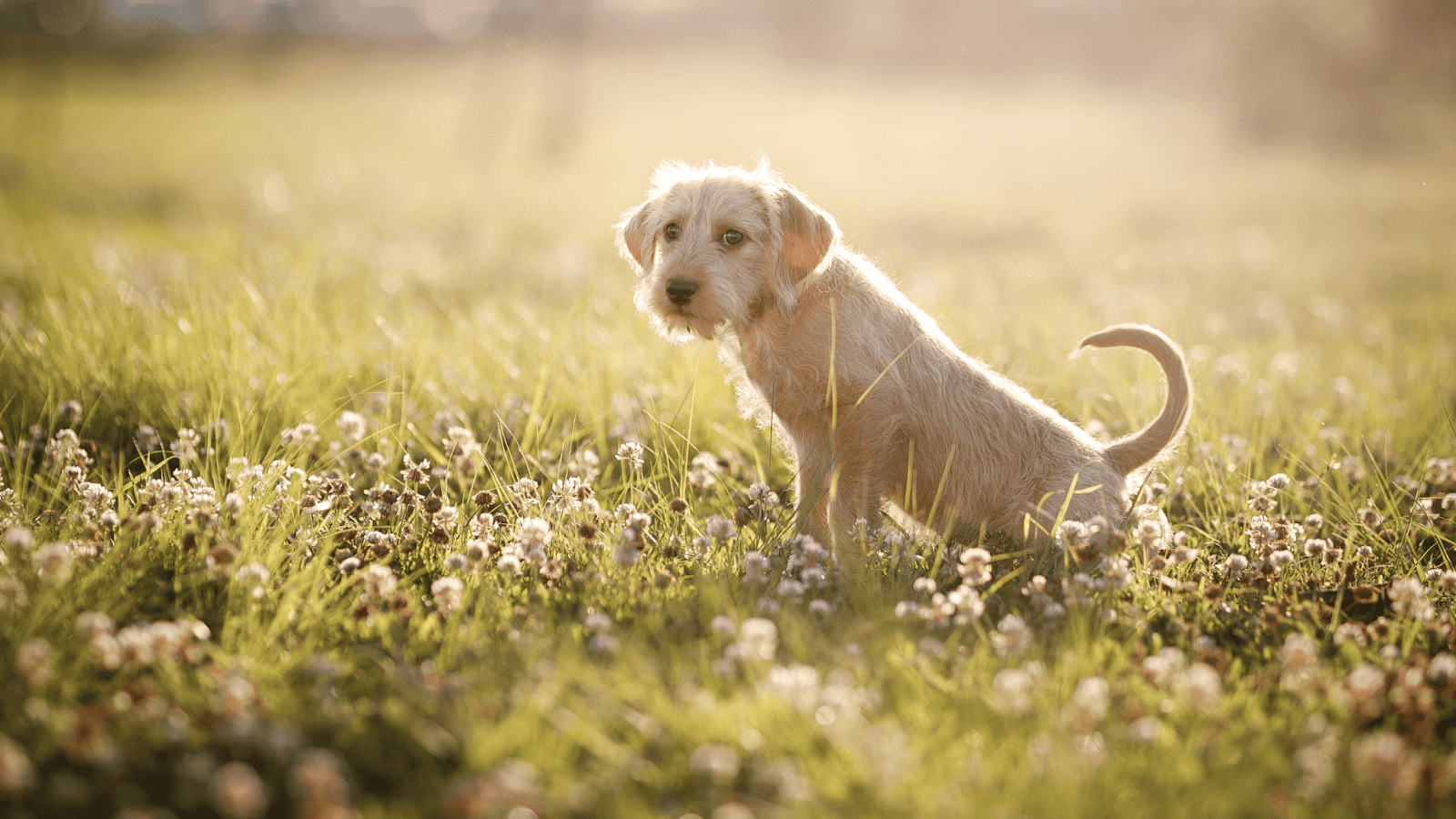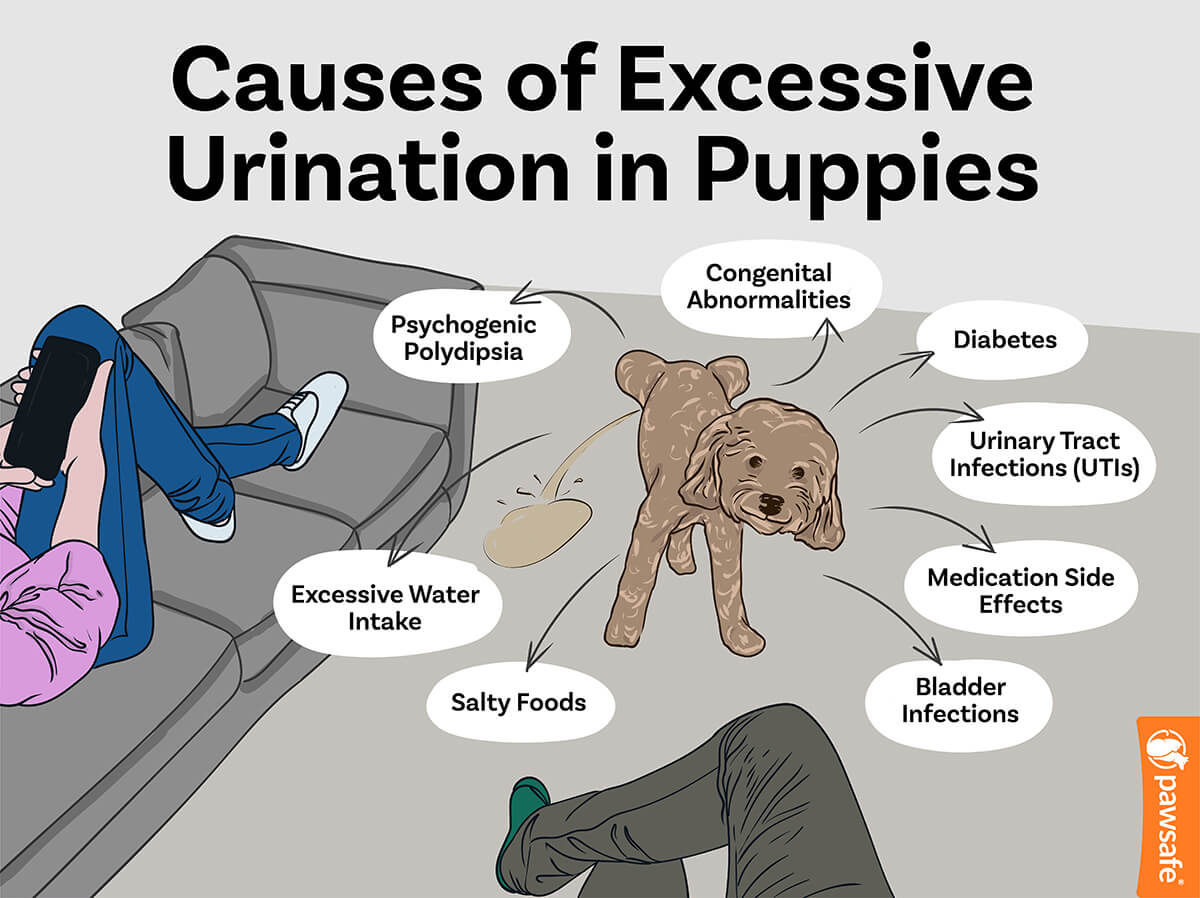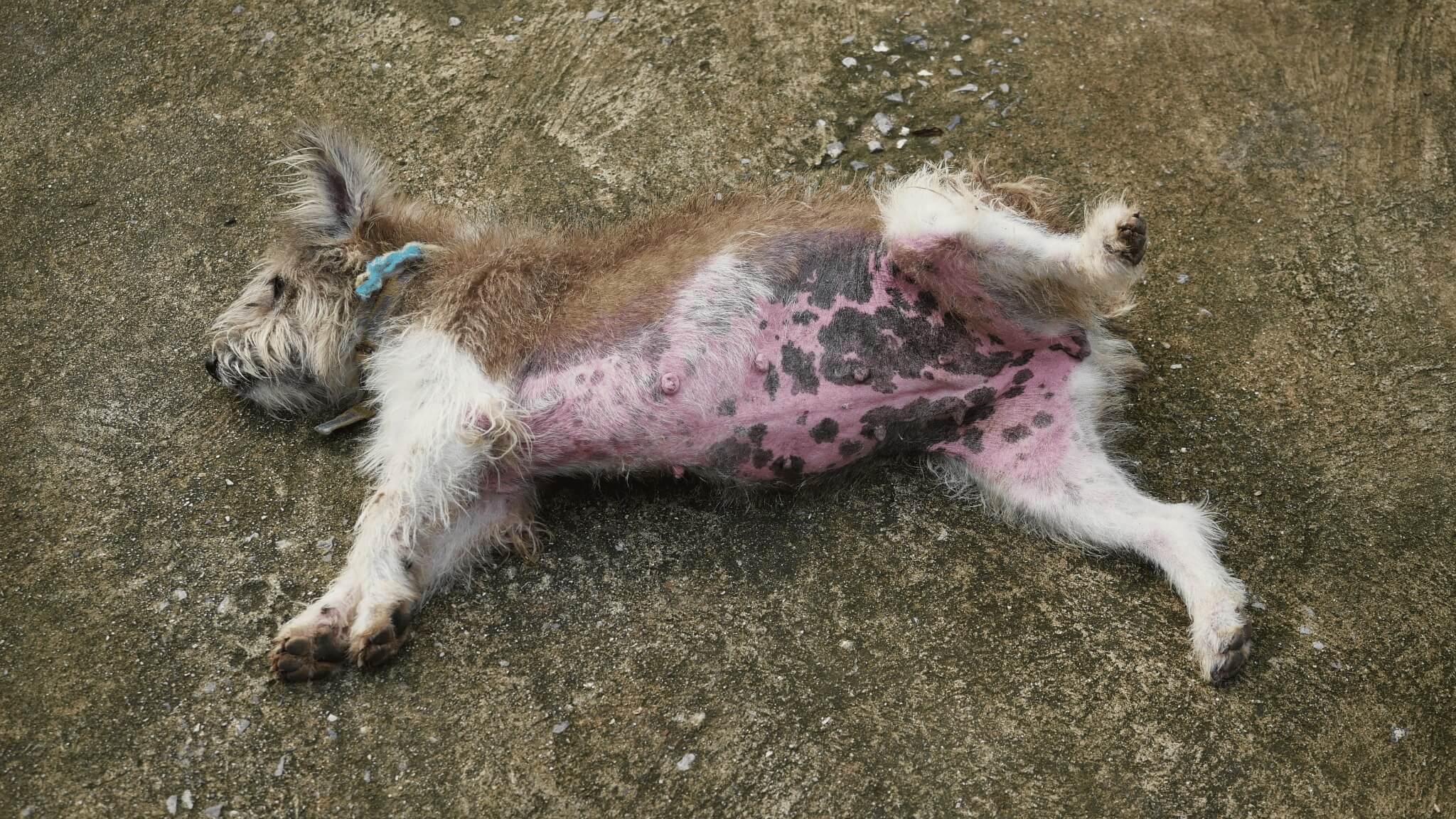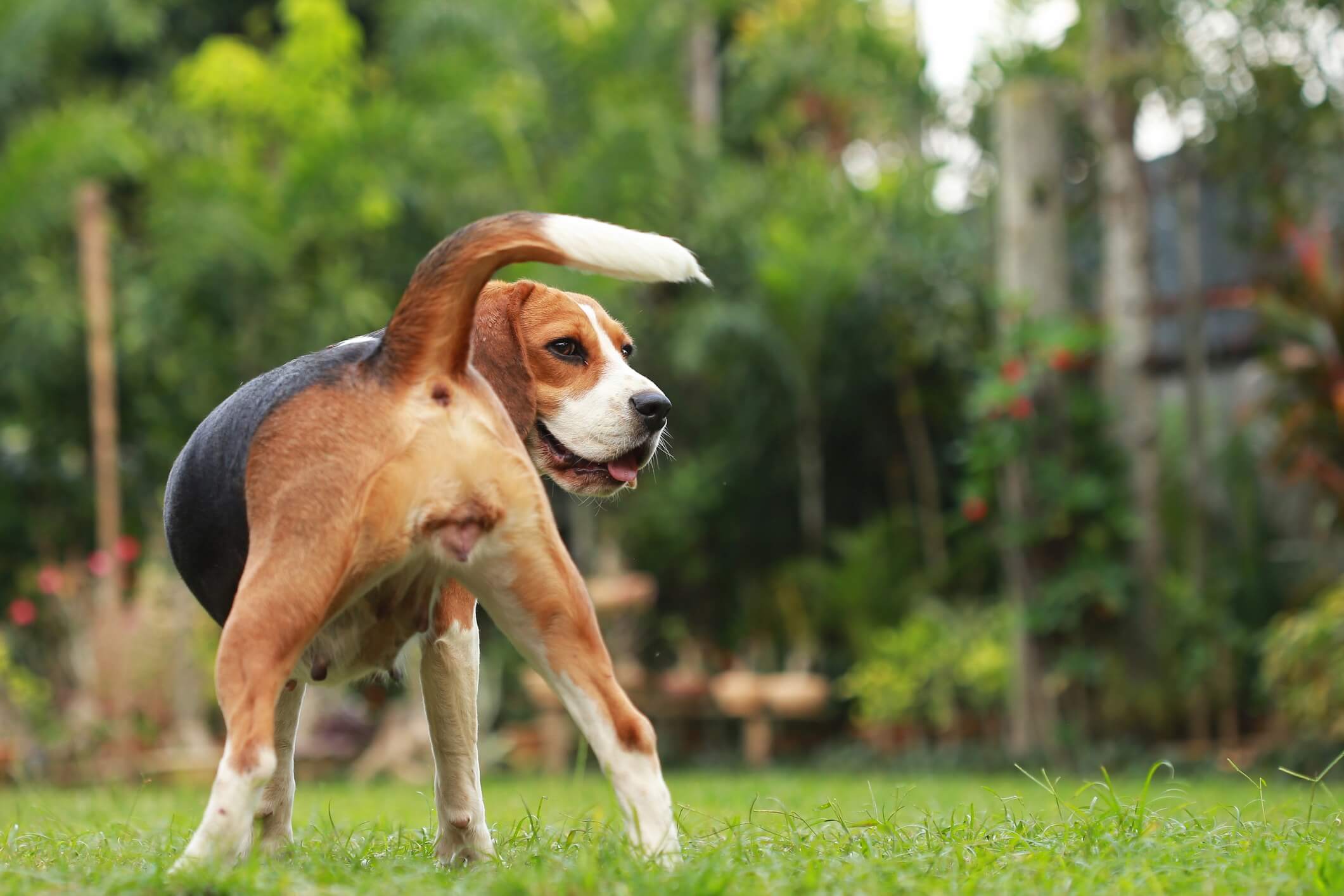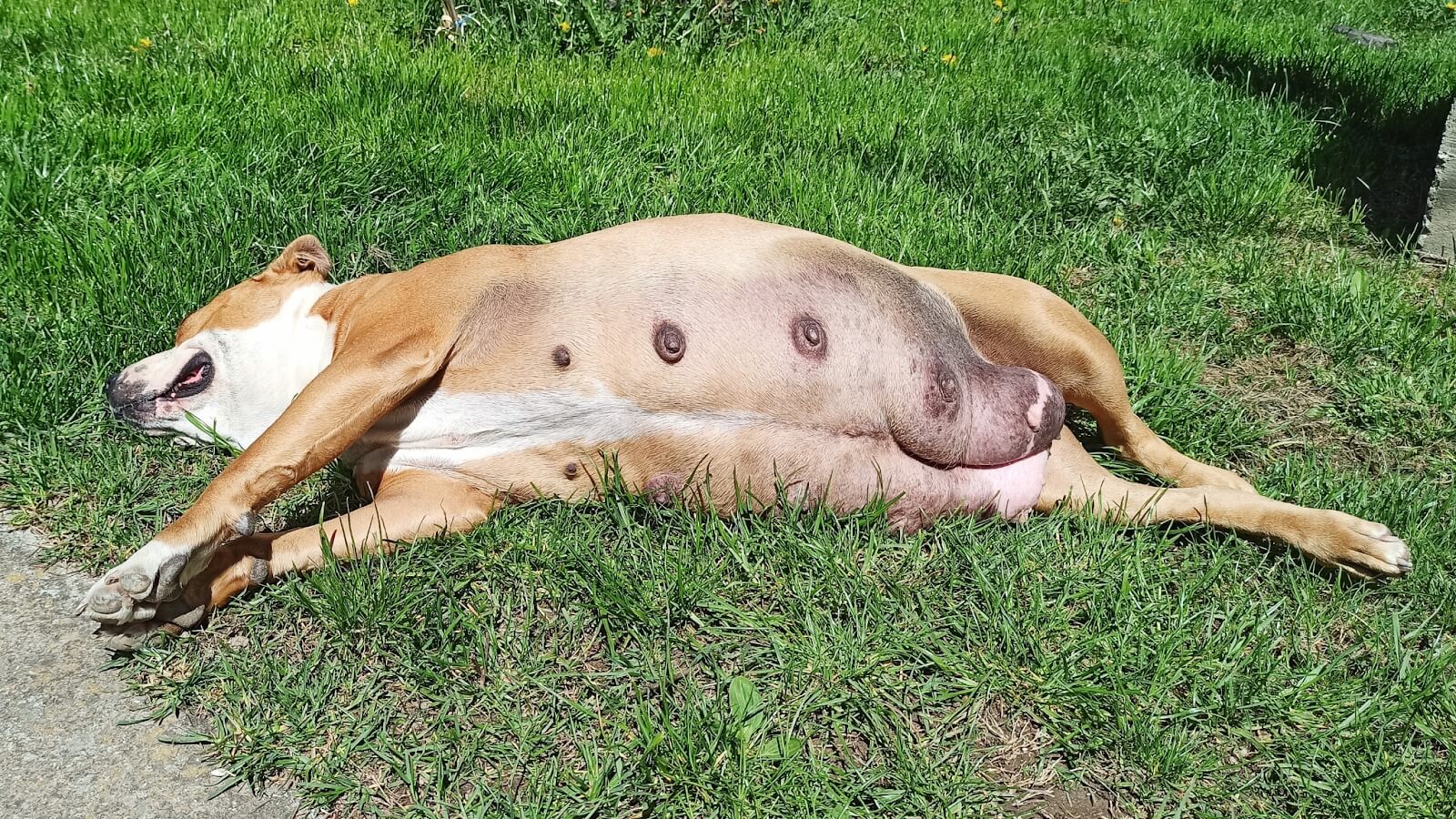Puppies are adorable, but they can also be a handful. One common issue new puppy owners face is their puppy peeing a lot. While it’s normal for puppies to pee frequently, excessive urination can indicate an underlying health problem.
Due to smaller bladders, young puppies naturally pee more than older dogs. This is why puppy owners invest in leak-proof puppy pads and a dog stain remover to avoid and deal with any stinky surprises. However, some puppies go overboard with their peeing, whether for medical or psychological reasons.
If your puppy is peeing a lot, it’s important to take them to the vet for a check-up to address underlying issues. We have drawn from puppy care books and excessive dog urination studies, we have answered why your puppy may be peeing excessively.
So, Why Is My Puppy Peeing A Lot?
There are several reasons why a puppy may be peeing a lot. One of the most common causes is a urinary tract infection (UTI). Other potential causes include diabetes mellitus, kidney disease, liver disease, and bladder stones. Puppies also naturally have smaller bladders and may drink more water during teething or increased activity.
Polyuria and Polydipsia In Puppies
Puppies may pee excessively due to polyuria and polydipsia. Diabetes mellitus, kidney disease, urinary tract infections, and liver disease can cause these conditions.
Polyuria is a medical term used to describe excessive urination, while polydipsia refers to excessive thirst. Both conditions can occur in puppies, indicating an underlying health issue. Our article on why your dog is always thirsty will help if your puppy suffers from polydipsia.
One common cause of polyuria and polydipsia in puppies is diabetes mellitus. This condition occurs when the body cannot produce or properly use insulin, leading to high blood sugar levels. Other potential causes of excessive urination and thirst in puppies include kidney disease, urinary tract infections, and liver disease.
If a puppy is peeing excessively, it’s essential to consult a veterinarian to determine the underlying cause. The veterinarian may perform blood, urine, and other diagnostic tests to identify health issues. Treatment will depend on the underlying cause and may include medication, dietary changes, or other interventions.
Understanding Puppy Peeing Habits
Puppies have a lot of energy and a small bladder, which is why they tend to pee frequently. Understanding their peeing habits is vital for their health and your sanity.
Remember that puppies drink more water because they have faster metabolisms and move more. This translates to more peeing compared to older dogs, even when there aren’t underlying medical issues.
Frequency of Peeing
Puppies pee frequently, especially during the first few months of their lives. They need to pee every 30-45 minutes, depending on their age and size. They can hold their bladder for longer periods as they grow, but it’s essential to take them out frequently to avoid accidents.
Signs of Needing to Pee
Puppies show different signs when they need to pee. Common signs include sniffing around, circling, whining, or scratching at the door. It is essential to pay attention to these signs and take them out as soon as possible.
Training and Consistency
Training and consistency are crucial to helping your puppy develop good peeing habits. It’s crucial to establish a routine and take them out at the same times every day.
Also, praise them when they pee outside and avoid punishment for accidents inside the house. Bell training and crate training your puppy are valuable tools when housetraining your puppy.
Health Concerns
If your puppy is peeing excessively or having accidents despite consistent training, it could be a sign of a health issue. Some common health concerns include urinary tract infections, bladder stones, or diabetes.
15 Causes of Excessive Urination in Puppies (Polyuria)
Excessive urination is common in puppies for natural or medical reasons. Here are 15 reasons why your puppy may be peeing a lot:
1. Puppies Have Smaller Bladders and Faster Metabolisms
One of the main reasons puppies urinate a lot is their smaller bladders than adult dogs and faster metabolism. This means they must go to the bathroom more often, as they cannot hold as much urine as older dogs.
It is important to note that a puppy’s urination frequency can also depend on their age and breed. A good rule of thumb for puppies is that they can hold their pee for roughly one hour each month as they grow. Learn more about how long dogs hold pee in our article.
2. Eating Salty Foods
Eating salty foods can cause a puppy to drink more water, which, in turn, can lead to more frequent urination. This is because salt, or sodium, is a natural diuretic that promotes urine production. When a puppy consumes a large amount of salt, their body naturally tries to flush it out by increasing urine production.
Additionally, a study by the University of Connecticut showed that high protein diets can cause excessive thirst, in turn increasing peeing.
Puppy owners must be mindful of the salt their puppy consumes. Too much salt can lead to dehydration, with signs like drooling, panting, and restlessness. Additionally, excessive salt intake can also lead to an increased risk of developing urinary tract infections.
Some common salty foods to avoid giving to puppies include:
- Chips;
- Pretzels;
- Processed meats;
- Cheese; and
- Fast food.
Instead, puppy owners should focus on providing their puppies with a balanced diet with plenty of fresh fruits, vegetables, and lean protein sources.
3. Diabetes
Puppies with diabetes can experience increased urination due to the body’s inability to regulate blood sugar levels properly. This can lead to excessive thirst and frequent urination, including accidents in the house.
Diabetes in puppies is relatively rare, but it can occur. Some breeds, such as the Miniature Schnauzer and the Beagle, are more prone to developing diabetes than others. Additionally, obesity and a sedentary lifestyle can increase the risk of developing diabetes.
4. Urinary Tract Infections (UTIs)
Puppies who pee excessively may be experiencing a urinary tract infection (UTI). UTIs are common in dogs, and they can cause various symptoms, including frequent urination, incontinence, straining to urinate, and blood in the urine.
UTIs are caused by bacteria that enter the urinary tract and multiply, leading to an infection. Female puppies are more susceptible to UTIs because their urethras are shorter than males, making it easier for bacteria to enter the bladder.
5. Certain Medications (Diuretics)
Diuretics are commonly prescribed to treat high blood pressure, heart failure, and other medical conditions. These medications work by increasing the amount of urine the body produces, which can help reduce fluid buildup in the body.
However, diuretics can also cause a puppy to pee more frequently. Research shows diuretic medication increases the amount of urine produced by the kidneys, which can lead to more frequent urination. Some diuretics are more potent, and some can cause more side effects.
6. Cushing’s Disease (Rare in Puppies)
Cushing’s disease is a condition caused by the overproduction of cortisol, a hormone that regulates metabolism and the immune system. While it is rare in puppies, it can occur in some cases.
Symptoms of Cushing’s disease in puppies are similar to those in adult dogs and can include excessive thirst and urination, increased appetite, panting, lethargy, and hair loss. However, these symptoms can also be caused by other conditions, so it’s essential to have a veterinarian diagnose the underlying problem.
7. Dry Food
Dry food is a popular choice for many puppy owners. It is convenient, easy to store, and often less expensive than wet food. However, not all dry food is created equal. It is important to choose a high-quality, nutritionally balanced dry food for your puppy.
Research shows that dry food contains less than 11% moisture content, which is hard on a puppy’s hydration levels. This leads to more water intake to quench the thirst and, consequently, more urination.
8. Kidney Disease
Kidney disease is a condition that affects the proper functioning of the kidneys. One of the symptoms of kidney disease is increased urination and increased thirst, which can lead to your puppy peeing a lot. Kidney disease can be caused by a variety of factors, including genetics, infections, and toxins.
9. Liver Disease
Liver disease can cause excessive urination in puppies. The liver filters toxins from the blood and produces bile, which helps with digestion. When the liver is not functioning properly, toxins can build up in the body, leading to various health problems. These include increased urination, orange or green pee, lethargy, vomiting, and inappetence.
10. Congenital Renal Lesions
Puppies that pee excessively may have congenital renal lesions, which are abnormalities of the kidneys present at birth. These lesions can cause problems, including increased urine production and frequent urination.
One type of congenital renal lesion is renal dysplasia, which is a condition where the kidneys do not develop properly. The other is polycystic kidney disease, characterized by the growth of cysts on the kidneys.
11. Psychogenic Polydipsia in Puppies
Psychogenic polydipsia is a condition in which a puppy drinks an excessive amount of water due to psychological factors. Puppies with this condition may urinate frequently, leading to concerns about house training and potential health problems.
Expert sources show that psychogenic polydipsia in puppies is more common in large breeds, including Labrador Retrievers, Golden Retrievers, and German Shepherds. It is also more prevalent in puppies that have experienced stress, anxiety, or boredom.
12. Drinking More Water Due to Cancer
Paraneoplastic syndromes are a group of disorders that affect some dogs with cancer. These syndromes are caused by the production of abnormal proteins by cancer cells that affect normal tissues in the body. In some cases, paraneoplastic syndromes can cause excessive urination and thirst in dogs.
13. Toxins and Poisons That Influence Thirst
Several toxins and poisons can cause excessive thirst in puppies, leading to frequent urination. These substances can be found in common household items or the environment and can harm your puppy’s health if ingested.
Common household toxins include:
- Antifreeze;
- Chocolate;
- Certain plants;
- Garlic and onions; and
- Artificial sweeteners (xylitol).
14. Submissive or Excited Peeing
Puppies may pee out of excitement or submission, which can be a common issue for pet owners.
Submissive Peeing
Submissive peeing is when a puppy urinates when they feel intimidated, scared, or uncomfortable. This behavior is common in puppies but can persist into adulthood if not addressed. Submissive peeing is often seen when the puppy feels threatened or anxious, such as meeting new people or animals.
To manage submissive peeing, it is important to avoid situations that trigger the behavior. Additionally, you can try the following tips:
- Avoid eye contact or direct attention when greeting the puppy.
- Use positive reinforcement and rewards for good behavior.
- Avoid scolding or punishment for submissive peeing, as this can worsen the behavior.
- Keep a consistent routine and environment to reduce anxiety.
Excited Peeing
Excited peeing is when a puppy urinates due to overstimulation or excitement. This behavior is common in puppies and is often seen when they greet their owners or visitors. Excited peeing is usually not a sign of a medical issue and can be managed with simple steps.
To manage excited peeing, you can try the following tips:
- Avoid overstimulating the puppy with loud noises or sudden movements.
- Keep greetings calm and low-key.
- Take the puppy outside to pee before exciting activities.
- Use positive reinforcement and rewards for good behavior.
Why does my dog’s pupils get so big when he looks at me?
15. Inadequate Housetraining
Puppies that have not been properly housetrained may urinate frequently due to a lack of bladder control.
Symptoms to Watch For When Your Dog Pees A lot
If your puppy is peeing more frequently than usual or having accidents inside the house, it may indicate an underlying health issue. Here are some symptoms to watch for:
Frequent Urination
If your puppy is urinating more than usual, it could be a sign of a urinary tract infection or bladder issue. Puppies should typically urinate every 2-4 hours, depending on their age and size.
Straining to Urinate
If your puppy is having trouble urinating or appears to be in pain, it could be a sign of a urinary tract infection, bladder stones, or even a blockage. This is a serious issue that requires immediate medical attention.
Blood in Urine
If you notice blood in your puppy’s urine, it could be a sign of a urinary tract infection, bladder stones, or even a more serious condition like bladder cancer. It’s important to take your puppy to the vet right away if you notice this symptom.
Excessive Thirst
If your puppy drinks more water than usual, it could indicate a health issue like diabetes or kidney disease. This can lead to more frequent urination and accidents inside the house.
Changes in Appetite
Some puppies that pee excessively may refuse to eat. Others, like those with diabetes, may have an increased appetite.
Diagnosing Excessive Urination
Observation
Physical Examination
Blood Tests
Imaging Tests
Treatment and Prevention of Exessive Puppy Peeing
If a puppy is peeing excessively, it is vital to take them to a veterinarian to rule out any underlying medical conditions. Here are a few ways to treat excessive puppy urination:
Medical Treatments
The vet may perform a physical exam and run tests to determine if the puppy has a urinary tract infection, bladder stones, or any other medical issue causing frequent urination.
If a medical condition is found, the vet will prescribe appropriate treatment, including antibiotics, surgery, or other medications.
Behavioral Interventions
If no medical condition is found, the puppy’s peeing may be due to behavioral issues. In this case, several interventions can be used to help prevent excessive urination.
- Establish a consistent routine for the puppy, with regular feeding times and bathroom breaks. This will help the puppy learn when it is appropriate to pee and when it is not.
- Crate training can help prevent excessive urination. A crate can provide a safe and comfortable space for the puppy and can also be used to limit access to the rest of the house when the puppy is not supervised.
- Positive reinforcement training can be used to encourage the puppy to pee in appropriate places. This involves rewarding the puppy with treats or praise when they pee outside and ignoring or redirecting them when they attempt to pee inside.
- Consult with a professional dog trainer or behaviorist for further advice and guidance.
When to Consult a Veterinarian
If a puppy is peeing a lot, there are times when it is necessary to consult a veterinarian. It’s best to see your vet if your dog has blood in the urine, is struggling to urinate, and appetite changes. If your dog is otherwise fine, their excessive urination may reduce as their bladders mature.
Frequently Asked Questions (FAQs)
How often should a puppy pee?
Why is my puppy peeing frequently in small amounts?
What could be causing my male puppy to suddenly pee a lot?
Is it normal for an 8-week-old puppy to pee a lot?
How often do 12-week-old puppies typically need to pee?
Conclusion
It is essential to understand that puppies peeing a lot is a common issue that many pet owners face. While it can be frustrating, it is vital to approach the situation with patience and understanding. One of the most important things to remember is that puppies have small bladders and may need to go outside frequently.


